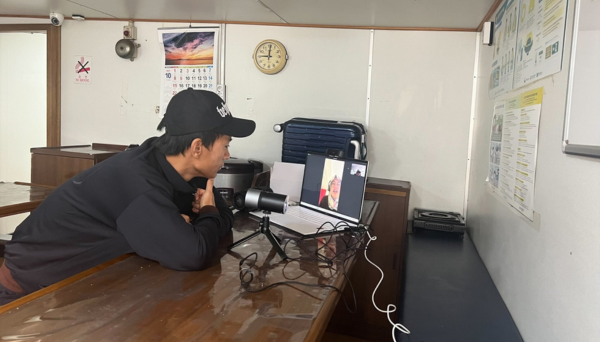Sajo Industries Ltd. leverages the Social Responsibility Assessment (SRA) to assess human rights risks in their tuna supply chain
In 2024, Korean based Sajo Industries Ltd. (henceforth referred to as “Sajo”) became the first Korean seafood company to conduct a risk assessment using the Social Responsibility Assessment (SRA) Tool for the Seafood Sector in their supply chain, showing a proactive commitment to undertaking human rights due diligence (HRDD). Sajo’s efforts come alongside the Korean Ministry of Oceans and Fisheries’ recently released Plan for Further Enhancement for Working Conditions of Migrant Fishers on Distant Water Fishing Vessels. The SRA, conducted with partner Ocean Outcomes (O2), not only helped identify opportunities for improvement in Sajo’s supply chain, but also set up a strong foundation for worker engagement moving forward.
Much of the information in this case study comes from O2’s own report on this project.
Challenge
Sajo Industries Ltd. is a Korean-based company engaged in the production and distribution of seafood-related products, including fresh tuna and Alaskan pollock as well as tuna and mackerel cans.
Sajo has been working on environmental sustainability for some time, addressing the environmental impacts of longline tuna fishing, improving the management of the largest tuna fisheries in the world, and promoting sustainable fishing practices in South Korea. They are part of the Korean Roundtable for Sustainable Tuna Fishing, participated in a government pilot program on electronic monitoring, and worked with Ocean Outcomes to achieve MSC Certification for their longline tuna fleet.
Acknowledging that environmentally-focused seafood frameworks have fallen short when it comes to upholding the rights of fishers, Sajo chose to work with O2 to also tackle social responsibility in their direct operations and supply chains. As explained by O2, distant water fishing fleets are at particular risk of human rights violations due to “extreme isolation, hazardous working conditions, and jurisdictional gaps in monitoring and enforcement.” Violations in such fleets are well-documented around the world.
As one of the top five DWF countries in the world, accounting for 10% of global DWF effort, South Korea has an important role to play in addressing human rights issues, ensuring protections for workers, and improving transparency in supply chains.

Strategy
Working with O2, Sajo became the first Korean seafood company to implement an SRA, assessing human rights risks in their supply chains, identifying areas for improvement, and developing an action plan to address those risks. The SRA, conducted with longline tuna vessels in Gamcheon Port, included both desk-based components as well as interviews with crew and vessel inspections. Direct engagement with fishers (including migrant workers), captains, and vessel owners sets the SRA apart from many social audits; as much as possible, the SRA methodology relies on information from workers as a primary source of data.
Founded on key criteria from international standards, the SRA is a risk assessment tool for the seafood sector that companies can use to (1) assess social risks, (2) uncover critical information gaps, (3) identify areas in need of improvement, and (4) inform and develop an action plan. The SRA can be used as part of a broader human rights due diligence program, helping companies determine how to prioritize action and who to collaborate with.
Outcome
Conducting interviews with fishers, captains, and vessel owners involves logistical challenges; O2 and Sajo had to maximize limited days in port and tackle language barriers by working with local interpreters. The result: a strong foundation for direct engagement with affected stakeholders moving forward. This foundation will help Sajo continue its social responsibility work.
Findings from Sajo’s SRA highlighted opportunities for improvement, including establishing systems to monitor recruitment and remediate issues, better standards for wages and benefits for migrant workers, and increased access to grievance mechanisms. Many of these issues are known to exist in DWF fleets around the world; but by ground truthing the issues that matter most to workers in Sajo’s supply chains, O2 and Sajo can now determine how to prioritize action and make changes to best address issues and support workers.

Looking Forward
Effectively and sustainably addressing human rights in seafood supply chains will require collaboration across many different groups – from government and industry to civil society organizations. This case study highlights one of the ways in which the private sector can begin to tackle human rights issues in their operations. An SRA is one piece of a broader human rights due diligence program–it allows companies to assess and understand risks in their supply chains and to set the foundations for effective engagement with affected stakeholders on the ground. Actioning the findings of an SRA and continuing to engage with stakeholders to ensure long-term, sustained improvements is essential.
